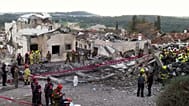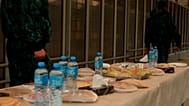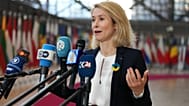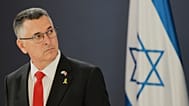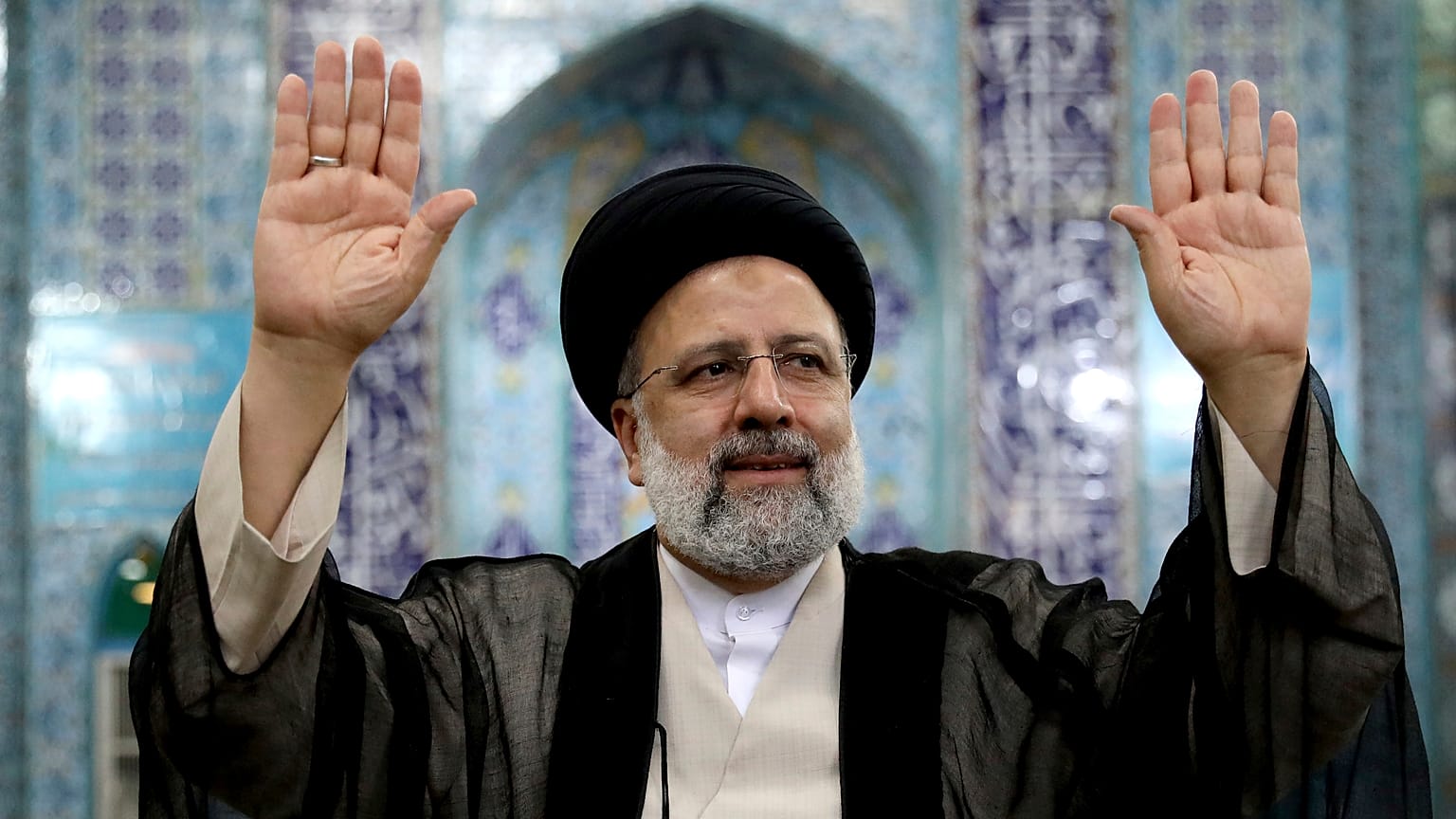Judiciary Chief Ebrahim Raisi is set to become the first serving Iranian president sanctioned by the US before even entering office.
Iran's current judiciary chief Ebrahim Raisi has comfortably won the country's presidential election in a vote marked by low turnout and calls for a boycott.
 ADVERTISEMENT
ADVERTISEMENT
 ADVERTISEMENT
ADVERTISEMENT
In official results, Raisi won 17.9 million votes overall, nearly 62% of the total 28.9 million cast.
Raisi is under US sanctions in part over his involvement in the mass execution of thousands of political prisoners in 1988.
Following Raisi was former hardline Revolutionary Guard commander Mohsen Rezaei with 3.4 million votes. Former Central Bank chief Abdolnasser Hemmati, a moderate viewed as a stand-in for outgoing President Hassan Rouhani in the election, came in third with 2.4 million votes. Amirhossein Ghazizadeh Hashemi was last with just under 1 million.
Raisi's rivals had conceded defeat even before the final results were released.
Hemmati wrote to the new president-elect on Instagram early on Saturday: “I hope your administration provides causes for pride for the Islamic Republic of Iran, improves the economy and life with comfort and welfare for the great nation of Iran.”
Rezaei also conceded defeat. Outgoing president Hasan Rouhani congratulated his successor, but without naming him.
More than 4 million votes, however, were determined to be invalid. Local police forces announced the arrest of dozens of people across the country on Friday, some in connection with alleged cash-for-votes operations.
Historic low turnout recorded in Iran after mass disqualifications
The race had the country's lowest turnout of any vote since the 1979 Islamic Revolution, with about half of the 59 million-strong electorate casting a vote. Of those voting, some 3.7 million people either accidentally or intentionally voided their ballots, far beyond the amount seen in previous elections.
The election also had no international observers to monitor proceedings on the day, in line with previous years. Voting was delayed in some polling stations due to technical issues with the electronic voting system and a shortage of paper ballots.
Raisi, a protege of both Iran’s Supreme Leader Ayatollah Ali Khamenei and his predecessor Ayatollah Khomeini, benefited from the disqualification of most of his strongest competitors.
In May the Guardian Council, an unelected body which oversees elections in Iran, disqualified all but seven candidates, six of them belonging to Iran's conservative faction and three of whom withdrew before polling day on Friday.
As a result, Raisi's electoral win was regarded by many as a foregone conclusion. On Wednesday Khamenei issued an urgent call for Iranians to vote to "legitimise" the process, and the wider system.
Turnout appeared to be far lower than in Iran’s last presidential election in 2017. Voting was extended from 11pm to 2am on Sunday at several polling stations nationwide.
Both Khamenei and Iranian state television sought to downplay the low turnout, blaming it on interference by Iran's regional and Western rivals. The Islamic Republic has long cited voter turnout as a sign of its legitimacy ever since it was established in 1979.
Syria congratulates president-elect, Israel warns of dangers
Abroad, Syrian President Bashar Assad immediately congratulated Raisi's win. Iran has been instrumental in seeing Assad hold onto the presidency amid his country's decade-long grinding war.
Separate congratulations came from Dubai's ruler Sheikh Mohammed bin Rashid Al Maktoum, who also serves as the vice president and prime minister of the hereditarily ruled United Arab Emirates. The UAE has been trying to de-escalate tensions with Iran since a series of attacks on shipping off its coast in 2019 that the US Navy blamed on Iran.
Also congratulating Raisi was Oman, which has served as an interlocutor between Tehran and the West.
Iran's archrival Israel, however, slammed the new leader. Foreign Minister Yair Lapid called Raisi “the butcher of Tehran” and described him as responsible for the deaths of “thousands of Iranians.”
Rouhani, who in 2017 dismissed Raisi as an opponent in his reelection as someone only knowing about “executions and imprisoning” people, met the cleric Saturday and congratulated him.
Raisi's election does nothing to improve outlook for Vienna talks
The outgoing administration of moderate president Hasan Rouhani had reached the 2015 nuclear deal with world powers, in which Iran agreed to curb its nuclear activities in return for sanctions relief.
But this crumbled just three years later when then-US President Donald Trump withdrew from the deal and reimposed sanctions on Iran.
Talks about the possibility of reviving the deal are ongoing in Vienna. But the election of Raisi, a hardliner, will do little to improve their prospects for success.
Raisi is now poised to become the first serving Iranian president sanctioned by the US government before entering office. Travel bans mean it will be difficult for him to conduct state visits to any countries that uphold the sanctions.
The US sanctions relate to his direct involvement in the mass execution of thousands of political prisoners in 1988 as a member of the so-called Tehran 'Death Panel' appointed by Khomeini.
Raisi has also presided over human rights violations documented by the United Nations in his role as the head of Iran's judiciary, a position he has held since March 2019. These include arbitrary detention and torture. More than 500 people were executed in Iran in his first two years in office.
His victory puts hardliners firmly in control of the Iranian executive at a time when Tehran is also enriching uranium at its highest-ever level.
Public anger aimed at Rouhani over the collapse of the deal - and subsequently the Iranian economy, where inflation stood at around 40 per cent last year - has also harmed those that would see Iran's political system reformed from within.
No prospect for imminent political change inside Iran
Raisi will now also be at the helm at what could be one of the most crucial moments for the country in decades: the death of 82-year-old Khamenei.
While the president is considered the country's chief executive, decision-making powers lie in practice with the Supreme Leader. Raisi has long been tipped as the natural successor to Khamenei alongside the Leader's son, Mojtaba Khamenei.
Khamenei cast the first vote from Tehran, urging the public to "go ahead, choose and vote.”
Raisi, wearing a black turban that identifies him in Shiite tradition as a direct descendant of Islam’s Prophet Muhammad, voted from a mosque in southern Tehran. The cleric acknowledged in comments afterwards that some people may be “so upset that they don’t want to vote.”
"I beg everyone, the lovely youths, and all Iranian men and women speaking in any accent or language from any region and with any political views, to go and vote and cast their ballots,” he said.
The low turnout had led to some warning that Iranians may be turning away from the current Islamic Republic system after 42 years.
Iran is currently run as a theocracy by a Shiite clergy, backed up by paramilitary forces, while its democratically-elected elements - the president, parliament and local councils - wield considerably less power. The Supreme Leader has the final say on all matters of state and oversees Iran's defence and atomic programmes.
Former president Mohammad Khatami, a reformist who served for eight years, said of the vote: “This is not acceptable. How would this conform to being a republic or Islamic?”
Reformist politician Mehdi Karroubi, who has been under house arrest ever since the pro-democracy Green Movement protests of 2009, and Mahmoud Ahmadinejad, his hardline rival in that year's election, both boycotted the vote on Friday.

